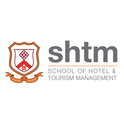PolyU Released Report on 2013 Tourist Satisfaction and Tourism Service Quality Indices


The School of Hotel and Tourism Management (SHTM) at The Hong Kong Polytechnic University (PolyU) today released a report on the PolyU Tourist Satisfaction Index (PolyU TSI) and the Tourism Service Quality Index (PolyU TSQI), presenting the PolyU TSI for Hong Kong from 2009 to 2013 and the PolyU TSQI from 2012 to 2013.
The 2013 PolyU TSI hit a record high of 75.96, increasing 0.89 points from 75.07 in 2012. The index measures inbound tourists' satisfaction levels across six tourism-related sectors and integrates them into an overall index. The 2013 index indicates that tourists have become increasingly more satisfied with Hong Kong over time.
The index shows that the sectors consistently excelling in service performance in Hong Kong are attractions (79.27) and transportation (78.58). Immigration (76.55), hotels (73.93), retail shops (73.63) and restaurants (73.36) have also managed to exceed tourist expectations. Over the 2009-2013 period, transportation earned the highest tourist satisfaction index with an average of 78.28.
The measurement of tourist satisfaction with Hong Kong spanning five years from 2009 to 2013 has revealed the stability of the market-level index, with Australia, New Zealand and the Pacific scoring the highest (81.29), followed by the Americas (81.27), Europe, Africa and the Middle East (79.27), South and Southeast Asia (76.48), Mainland China (73.97), Taiwan and Macau (71.66) and Japan and Korea (67.59). Over the period, the Americas received, on average, the highest tourist satisfaction index of 79.60.
The PolyU TSI evaluates service sector competitiveness not only over time but also across international tourist destinations. In fact, the Indices have been adopted by an increasing number of destinations, including Macau in 2010 and China's Guangdong province in 2012. "We are advancing the index in two directions," explained Professor Haiyan Song, SHTM Associate Dean and Principal Investigator of the PolyU TSI, "first by the introduction of the PolyU TSQI in 2012 and then by continuing to collaborate with destination management organizations worldwide to establish a widespread framework for measuring destination competitiveness based on tourist satisfaction."
With an underlying research design resembling that of the PolyU TSI, the PolyU TSQI is a weighted average of the six tourism service quality indices, measuring overall tourism service quality. The PolyU TSQI stood at 77.30 for 2013, an increase of 1.93 points from 75.37 in the previous year.
Among the six service sectors, attractions received the highest score of 81.37, followed by transportation (80.15), immigration (78.15), hotels (76.01), retail shops (74.83) and restaurants (73.91).
Tourists from the Americas had the highest tourism service quality index score of 82.81 in 2013, followed by Australia, New Zealand and the Pacific (82.28), Europe, Africa and the Middle East (80.57), South and Southeast Asia (76.76), Mainland China (76.36), Taiwan and Macau (73.82) and Japan and Korea (68.86).
The PolyU TSQI score was 77.30 for 2013, which was 1.34 points higher than the PolyU TSI of 75.96 for the same year. The deviation between the two indices helped detect areas where service performance failed to boost tourist satisfaction. "With such a comprehensive and sophisticated system of measuring the level of satisfaction of customers and service quality of suppliers, the PolyU TSI and TSQI frameworks would contribute to the sustainable tourism development by helping tourist destinations to become more competitive. It also ensures that tourists enjoy their travel experience to the full," Professor Kaye Chon, SHTM Dean and Principal Investigator of the PolyU TSQI said. "We at the SHTM are committed to bringing cutting-edge research to business practice and thereby addressing the global challenges that tourism faces."
PolyU TSI and TSQI website: http://www.touristsatisfaction.org
About PolyU School of Hotel and Tourism Management
For 45 years, the School of Hotel and Tourism Management (SHTM) of The Hong Kong Polytechnic University has refined a distinctive vision of hospitality and tourism education and become a world-leading hotel and tourism school. Ranked No. 1 in the world in the "Hospitality and Tourism Management" category in ShanghaiRanking's Global Ranking of Academic Subjects 2023 for the seventh consecutive year; placed No. 1 globally in the "Commerce, Management, Tourism and Services" category in the University Ranking by Academic Performance in 2022/2023 for six years in a row; rated No. 1 in the world in the "Hospitality, Leisure, Sport & Tourism" subject area by the CWUR Rankings by Subject 2017; and ranked No. 2 in the world among university based programmes in the "Hospitality and Leisure Management" subject area in the QS World University Rankings by Subject 2023 for the seventh consecutive year, the SHTM is a symbol of excellence in the field, exemplifying its motto of Leading Hospitality and Tourism.
The School is driven by the need to serve its industry and academic communities through the advancement of education and dissemination of knowledge. With a strong international team of 90 faculty members from 20 countries and regions around the world, the SHTM offers programmes at levels ranging from undergraduate to doctoral degrees. Through Hotel ICON, the School's groundbreaking teaching and research hotel and a vital aspect of its paradigm-shifting approach to hospitality and tourism education, the SHTM is advancing teaching, learning and research, and inspiring a new generation of passionate, pioneering professionals to take their positions as leaders in the hospitality and tourism industry.
Website: https://www.polyu.edu.hk/shtm/
Pauline Ngan
Marketing Manager
+852 3400 2634
Hong Kong Poly
